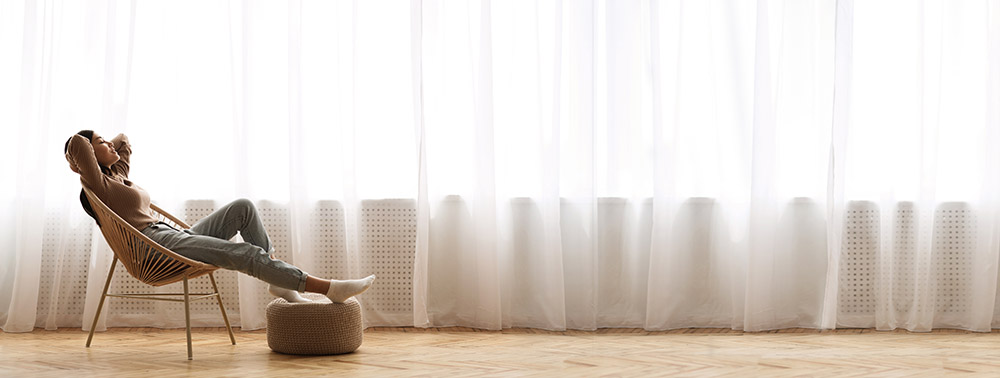Have you considered the stress relief benefits of doing nothing? Being called a “do-nothing” is far from a compliment in our society. It implies the idea that someone intentionally ignores their life purpose or progress, all for the sake of, well, doing nothing. It’s the squandering of energy that could’ve been put to positive use to benefit others. It’s also a slapstick insult you sometimes hear one politician make of another with differing ideas or goals.
But, out of fear of becoming unproductive, have we gone too far? What if the extent of how busy we are is often driven not by a desire for meaningful impact in society but by fear or guilt? It could be the fear of what others will think if you’re not always productive or the worry you won’t fit in or that people could view you as “lazy.” There are plenty of other possibilities as well.
In her Psychology Today article entitled “When’s the Last Time, You Did Nothing? Nine Easy Ways to Relax, Susan Biali Haas M.D. shares the following:
“I hear it from people all the time: ‘Whenever I try to relax, I get anxious. I feel like there’s something I should be doing. I feel guilty. I don’t enjoy myself.’ On and on it goes. Isn’t it sad that so many of us have come to this?”
Why exactly is doing nothing so necessary and healthy? Here are some thoughts on why taking a break is one of the best ways to relieve stress.
A Mentally Healthy Life Varies in Pace
With our busy schedules, it can be challenging to remember that life is best lived at different paces. If you always go at your highest speed, you’ll eventually burn out in a big way. Imagine a professional sprinter trying to run at their fastest all day long. How would that go? Soon, there would be an injury and perhaps a career-ending one.
Sometimes the best thing for a sprinter is to rest. If they don’t do that, they won’t have the necessary energy when their strength matters most. But that’s true for all of us. Life is a marathon, not a sprint. We need to take breaks here and there to be at our physical, mental, and spiritual best. Resting is just as important as sprinting. You can’t have one without the other (but we sure try)!
Doing Nothing is Actually Doing Something
As an example, you could say that intermittent fasting is your body doing nothing, but it’s very healthful physically, mentally and spiritually. Your body gets the chance to rest and repair itself. In the same way, a “busyness fast” also can be healthful to the entire person because doing nothing actually is doing something.
It turns out that it’s impossible to really do nothing. Regardless of what you do, it’s something whether you take a walk, a snooze, or a trip to the library. And even if you do nothing but gaze into space for a while, you don’t cease processing life. Something worthwhile is happening while you rest.
The key is to turn off your productivity pressure mode and simply exist for a while. Forget about what’s stressing you and just get lost in a different world.
Be Intentional About Doing Nothing
Especially if you’re naturally a driven person, you may struggle with the idea of doing nothing. You may have to schedule this time and relearn what it means to detach from your responsibilities for a while.
If you look back to when you were a kid or young adult, you can likely think of times you successfully did this. It was probably something that happened automatically. You didn’t have to think about or rehearse your rest times. It felt as natural as drinking a cup of cold water on a hot day.
That same ability still exists within you, although it may be buried due to the many responsibilities of work, family, and more. You just have to take a little time out of your days and weeks and bring back how things used to be. Embrace this because, contrary to popular belief, the rest you gain during those moments will help you get more done once it’s “go time” again.
It Gets Easier to Do Nothing the More You Practice It
Yes, having downtime can indeed feel anxiety-provoking at first. Ironically, something meant to de-stress your life can initially feel stressful! But the good news is the more you practice the art of doing nothing, the easier it becomes.
You tend to bring your work concerns and habits home with you and it can be difficult to take yourself out of “productivity mode.” That’s why stepping away for a while is so good for office stress relief (all the more if you’re working remotely).
You Start Seeing Life More Authentically
During your downtime, your internal dialogue still runs and you make observations about life that you wouldn’t have noticed if you hadn’t slowed down. These are the same moments the terminally ill report observing more—appreciation for the little things that often were previously taken for granted. You begin to witness the smallest moments and develop gratitude for how big of a gift and privilege life is.
It could be as simple as noticing some wildflowers, a neighbor’s smile or the voice of your child. It means being present in the moment and fully alive. You get the chance to think about your life’s course and what to do next. Still, this shouldn’t cross over to stressing out or worrying. Instead, it should focus on just existing, just being.
Maybe you discover the need to make some changes, big or small. Regardless of what you find out, it gets easier to rest and have peace during these much-needed moments. You begin to feel better able to take on life’s challenges. And once you realize doing nothing is one of the best stress relief strategies out there, you don’t ever want to go back.
Has Stress-Relief Been Tough to Achieve Lately?
If so, please know that many struggle to find anxiety and stress relief. In these situations, an anxiety therapist can often help you heal. Although it may be difficult to imagine at the moment, you can learn to live with far less stress and anxiety.
If you’d like to learn more about how the OC Relationship Center can assist you with stress and anxiety relief, please get in touch with us. Besides anxiety counseling, we also provide individual, relationship, and marriage therapy. Scheduling an appointment with us can be a valuable next step in your journey towards increased rest, peace, and happiness.



